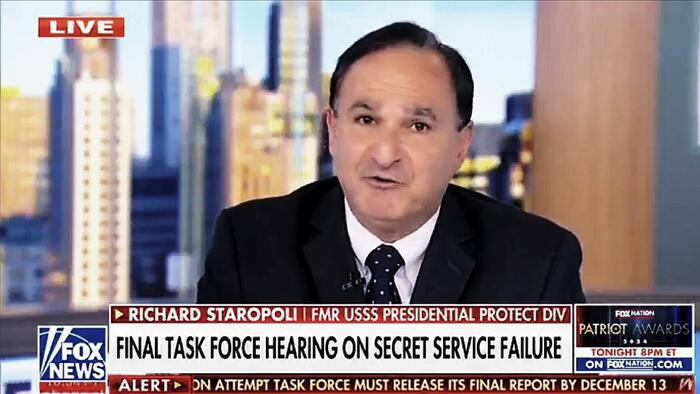Former Secret Service agent Richard Staropoli expressed grave concerns regarding Donald Trump’s security before his potential inauguration, highlighting a perceived failure within the Secret Service to manage threats to former President Trump’s safety effectively. In a recent interview on FOX News, Staropoli warned that an attack targeting Trump might be significant, even more so than the earlier assassination attempts that had occurred during the year. He conveyed a lack of confidence in the current capabilities of the Secret Service, which he argued has strayed far from its effective operational practices of the past, leading to vulnerabilities that could jeopardize Trump’s security.
Staropoli’s critical assessment of the Secret Service was particularly pointed during discussions around congressional testimonies given by Acting Director Ronald Rowe and other officials. He characterized the testimonies as a “smokescreen,” suggesting that they were intended to obscure the agency’s failures amid political pressures. In his view, the Secret Service’s diminished capacity to protect the president stemmed from negligence and a lack of basic operational priorities, which he believed should consist of placing human intelligence and manpower effectively on the ground.
He further emphasized the need for a foundational return to the practices that once made the Secret Service effective, asserting that sophisticated technologies like drones and UAVs could not replace the essential human elements necessary for securing environments where the president travels. Staropoli’s worry was not merely speculative; he asserted that he could foresee an event occurring before inauguration day that would pose a serious threat to Trump’s safety, indicating that the nature of such an attack could be on a larger scale than previously encountered, rather than simply random acts of violence from misdirected young individuals.
During congressional discussions, tensions escalated as Rowe engaged in a heated exchange with Congressman Pat Fallon, reflecting growing frustrations within the legislative branch regarding the Secret Service’s handling of security breaches. This confrontation resonated particularly because Fallon had previously been vocal about his dissatisfaction with the agency’s preparedness and leadership, notably criticizing then-Director Kimberly Cheatle for her performance and suggesting that she should no longer oversee such critical responsibilities.
In a past statement, Fallon had expressed disbelief that Trump escaped assassination in the previous attempts, calling for immediate accountability and changes in leadership within the Secret Service. The intensity of these exchanges highlights a broader atmosphere of concern among lawmakers over national security protocols and the administration’s protective measures for high-profile figures, particularly in light of the evident lapses in security that have been identified in past incidents.
Overall, Staropoli’s warnings and the contentious exchanges in Congress reveal a palpable anxiety about the current state and future effectiveness of the Secret Service in protecting Donald Trump. His assertion that the agency is no longer equipped to handle significant threats underscores a critical debate regarding the evolution of security methods and the challenges the Secret Service faces in a rapidly changing political and social landscape. As the nation moves closer to a transition of power, the implications of these issues remain a topic of immense concern for political leaders and citizens alike, necessitating an urgent appraisal of protocols designed to safeguard public figures.

